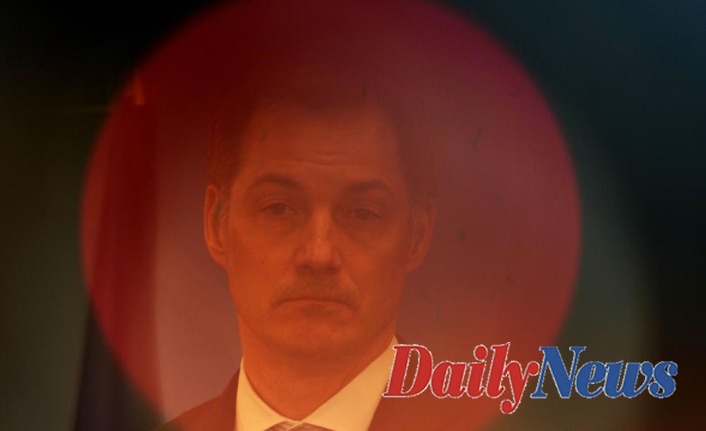The summit on Thursday saw 27 leaders face division over the most important issue of all: Energy.
The EU countries imposed harsh measures on Russia's economy, financial system, President Vladimir Putin, and Russian oligarchs during the first month of war.
They have avoided Russian fossil fuels unlike the U.S.
Alexander De Croo, the Belgian Prime Minister, stated that "We aren't at war with ourselves" at the summit in Brussels. Energy and sanctions were also key topics. "Sanctions should always have a greater impact on Russia than on us," De Croo said.
He represented the EU countries like Germany, Austria, and the Netherlands. They are battling against other members states that are closer to Russia and want stronger action.
"As long we continue to purchase energy from Russia, it is financing the war," Sanna Marin, Finland's Prime Minister, stated.
Baltic leaders joined her in demanding quick action.
Krisjanis Karins, Latvian Prime Minister, stated that "we have to continue to isolation Putin's economic -- Russia's economic -- to stop money flowing into war machine." "The best place to go forward is oil and coal."
The EU imports 90% natural gas to generate electricity, heat homes, and industry. Russia supplies almost 40% of EU's gas and 25% of its oil.
The European Commission, which is the executive arm of the EU, proposed that the bloc's dependence on Russian gas be reduced by two-thirds instead of an embargo. The EU has begun discussions with other suppliers and is currently in negotiations with the U.S. about ensuring additional deliveries of liquefied petroleum gas.
Maria Zakharova spokeswoman for Russia's Foreign Ministry. She said that European countries that aren't interested in working with Russia on energy should simply tell their citizens "who is destroying their prosperity" and how. We will cooperate with anyone who is interested in ensuring their energy security.
Rising energy prices triggered by a shortage in Europe have for many months caused rising energy bills and pump prices, which has been worsened as the war has jolted the energy markets.
According to the European Commission, EU imports of Russian goods totaled 158.5 billion euros last year. Mineral fuels accounted for 62% or 98.9 million euros.
Karins stated that the Ukraine war was an example of how morals should prevail over money. He said that despite Latvia's dependence on Russian oil, businesses supported a halt in trade in these goods.
He said, "They're telling me that sanctions are necessary because we must stop Putin's government." It's money. You can re-earn money if you are alive and your infrastructure is good.
Greenpeace accused the European Union, accusing it of financing Russia's war through its continued purchase of energy supplies.
Jorgo Riss, Greenpeace EU director, stated that fossil fuels are a common cause of conflict and war. Governments must eliminate them as soon as possible.
However, Mark Rutte, the Dutch Premier, indicated that the EU countries are still too divided on the issue of energy sanctions against Russia for them to reach an agreement at the summit. He emphasized the four sets of sanctions the EU has imposed on Russia in the last month.
Rutte stated that they will be discussing sanctions, but he didn't believe we would make a decision on sanctions. "Don't forget, the current sanctions package is the most difficult I have ever seen as a politician.












